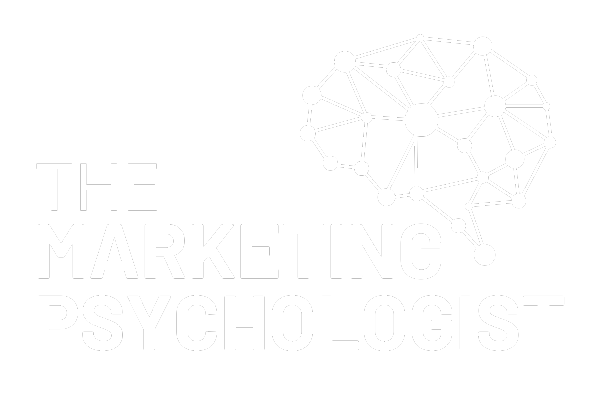AI as a Soft Skill
The Psychology of Human-Centered AI in Marketing
Is AI reshaping or replacing marketing? A question that seems up for debate. The part that’s not debatable is that the future of marketing hinges on understanding how to employ AI to enhance human connection. Cassie Kozyrkov, former Chief Decision Scientist at Google, advocates for decision intelligence — the integration of data science and social science to improve decision-making processes (Huang & Rust, 2021). And I have to say, I agree.
AI should amplify, not replace, human judgment, enhancing emotional intelligence and ethical decision-making in marketing strategies. And because of this … Ready for the mic drop? AI is a soft skill.
This article explores AI as a soft skill that necessitates psychological insight, ethical responsibility, and human intuition to drive authentic engagement.
Here’s What We’re Covering
Why AI should be treated as a soft skill rather than just a technology tool
The psychological impact of AI on consumer trust, decision-making, and emotional engagement
Practical strategies for using AI ethically in marketing to strengthen brand loyalty
The Psychological Impact of AI on Consumer Trust & Engagement
AI-generated content and hyper-personalization can either build or erode trust depending on its application (Taddeo & Floridi, 2018). Studies show that over-reliance on AI can create psychological distance between brands and consumers, reducing perceived authenticity (Lund, 2022).
But there’s a fix! Transparency in AI usage — such as disclosing AI-generated content — enhances consumer trust and aligns with ethical marketing practices (Edelman Trust Barometer, 2023).
Takeaway: AI-driven marketing must prioritize psychological safety and transparency to cultivate genuine connections.
Three Human Skills Marketers Need to Use AI Effectively
1. Judgment
AI can process data, but human marketers must interpret insights within the appropriate context. Kozyrkov emphasizes the importance of combining data science with behavioral understanding to make informed decisions (Davenport & Ronanki, 2018). For example, AI may suggest an aggressive retargeting campaign, but human judgment determines whether it aligns with ethical brand positioning (are you adding value or spamming?).
2. Emotional Intelligence
Understanding consumer psychology enables marketers to use AI to create emotionally resonant experiences rather than impersonal interactions (Goleman, 2020). Allie K. Miller, an AI business leader, discusses how AI can enhance human productivity and communication when used thoughtfully. AI chatbots should be designed with empathetic language to improve customer experience.
3. Ethical Decision-Making
AI should amplify ethical marketing practices, not replace human accountability (Floridi, 2021). Ravit Dotan, PhD, an AI ethics expert, provides frameworks for implementing AI ethics responsibly. AI-generated recommendations should be audited for bias to ensure fairness in marketing.
Takeaway: The most effective AI-driven marketers are not only tech-savvy but also possess psychological awareness, emotional intelligence, and ethical responsibility.
Using AI to Recenter Business Around Humanity
AI is more than optimizing for conversion. It should foster belonging — making customers feel seen, understood, and valued (Schultz & Block, 2020). Brands that successfully integrate AI with humanistic marketing see higher customer loyalty. Miller highlights the importance of aligning AI initiatives with human values to drive meaningful engagement.
Over-automation can lead to disconnection. The alternative? Brands should strategically blend AI with human touchpoints (HubSpot AI Report, 2024).
Takeaway: AI should serve as an enhancer of human connection, not a replacement for human interaction.
The Future of AI in Marketing is Human-First
AI is a powerful tool, but its true potential is realized when paired with human psychology and ethical decision-making. The future of marketing belongs to those who master AI as a soft skill — balancing automation with emotional intelligence.
Reframing AI as a human-centered competency aligns with the mission of recentering business around humanity. When we approach AI as a soft skill that requires psychological insight and ethical consideration, we transform it from a mere technological tool into a means of creating deeper human connections.
The most successful marketers will be those who understand both the technical capabilities of AI and the psychological nuances of human interaction. By developing AI as a soft skill, marketers can ensure that technology serves humanity rather than the reverse.
Time to Reflect
How do you currently use AI in your marketing efforts, and in what ways could you apply more human judgment, emotional intelligence, or ethical decision-making to improve its effectiveness?
What are some potential risks of over-relying on AI in marketing, and how can you ensure that AI enhances rather than replaces authentic human connection with your audience?
After reading this article, what specific actions will you take to develop AI as a soft skill in your marketing strategy—balancing automation with human intuition and ethical responsibility?
REFERENCES
Davenport, T. H., & Ronanki, R. (2018). Artificial Intelligence for the Real World. Harvard Business Review.
Dotan, R. (2023). Frameworks for Responsible AI Implementation. Montreal AI Ethics Institute.
Edelman Trust Barometer. (2023). Trust in AI: Consumer Attitudes & Expectations. Edelman Research.
Floridi, L. (2021). Ethics of Artificial Intelligence in Marketing. AI & Society, 36(3), 503–516.
Goleman, D. (2020). Emotional Intelligence: Why It Can Matter More Than IQ. Bantam Books.
Huang, M. H., & Rust, R. T. (2021). Artificial Intelligence in Service. Journal of Service Research, 24(1), 3–7.
Kozyrkov, C. (2023). Decision Intelligence: Bridging Data Science and Human Decision-Making. Google Research.
Lund, N. F. (2022). The Effect of AI-Generated Content on Perceived Authenticity. Journal of Consumer Psychology, 32(2), 205–220.
Miller, A. K. (2024). Human-Centered AI: Enhancing Productivity Through Technology. AI Business Quarterly.
Schultz, D. E., & Block, M. P. (2020). Humanizing AI in Marketing: The Role of Psychological Drivers in AI Adoption. Journal of Marketing Management, 36(1-2), 22–41.
Taddeo, M., & Floridi, L. (2018). How AI Can Be a Force for Good. Science and Engineering Ethics, 24(5), 1441–1457.

